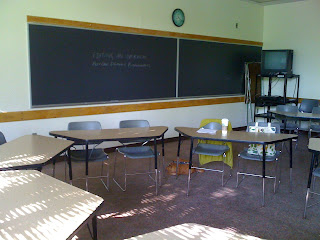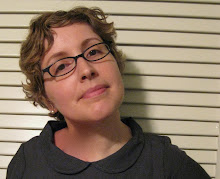
Hello, and thanks for your patience as I've rustled up some bloggable thoughts. Life has been pretty relentless for the past couple of weeks, and I've been in a bit of a slump for the past couple of days. I can't remember the last time I experienced this level of ennui. Maybe my brain and body are just telling me they need to relax after all the hoopla? Or maybe it's just the RAIN? I find myself blaming the rain for everything these days. Somehow, my life has turned into a Milli Vanilli song.
In any case, I had an amazing time as the editor-in-residence at Rhode Island College's ASTAL conference, where I met many talented writers and spoke a bit about my experiences in publishing and the state of the industry and what we can all do in these changing times ("adapt or perish" being the suggested new mantra).
I also critiqued several manuscripts during my tenure, and had some interesting discussions with the authors of those pieces. In many cases, my main concern (given that I was only critiquing the first ten pages of novels) was that the story began too abruptly, with no back story to ground me as a reader. In each case, the author informed me that they'd been told not to include backstory in the first chapter, as it would bog down the pacing. On another occasion, I encountered a manuscript where too much information was offered up-front; when I suggested starting the story at a later point and offering some of the more pertinent information via flashback, the author informed me that they'd been told to be wary of flashback, as it would overwhelm the main story.
To each of these responses, I say (and said) pish-posh. Of course, we never want to abuse certain devices, but backstory and flashback are intrinsic to every writer's toolkit. When used appropriately and discriminatingly, these tools can help you to convey information in a succinct, engaging way, allowing you to move your story along at the right pace. Without any backstory, you end up starting far too in media res, leaving your readers feeling rushed and lost and frustrated; it's like showing up for a movie half an hour or more after it's started. Without flashback, you're forced to convey your previously-occurring events and information in the present, which bogs down your prose with exposition. So feel free to employ ALL of the tools at your disposal; just be sure to practice good judgement in how (and how often) you use them.
After my two days at RIC, I switched gears, spending a day at Lesley University for the kick-off of my course, "Editing: An Overview." I gave two lectures that day, one on the structure of a publishing house and the process of acquisition, and one on the process of book production. In between, I participated in several "first pages" critiques, aided by my friend David Elliott. Thankfully, everyone seemed engaged, including yours truly, who was aided in keeping her wits about her with the help of two venti Starbucks lattes.
I got home just in time to do laundry, pack my things, and charge up my iPhone and Kindle. Next stop: writing retreat!
(to be continued)








No comments:
Post a Comment